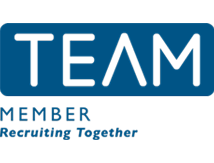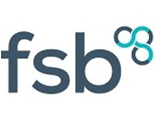
I have been in recruitment for over 10 years and have interviewed a few people during that time. Most people have a good understanding of what is required in an interview but you can never be over prepared or know too much so I have prepared some information which covers everything you need to know to ace your interview.
Before the interview Fail to prepare, prepare to fail!
- Planning and organising yourself for an interview is essential. It allows you to be calm and in control during the interview.
- When offered the interview, try and find out what format it will take e.g. one to one, group assessment, panel interview etc.
- Check you have read the job description thoroughly and know exactly what the company requires for this role.
- Ensure you know the full name of the person interviewing you and their job title.
One of the most popular interview questions is “What do you know about this company?” and with so much information online there is no reason not to be able to answer this with confidence.
- Research the company. Look at their website, read their blogs, search for news articles, take a look at the latest developments in this industry, research their competitors and search on LinkedIn for the people interviewing you. It may come in handy to know about their career and interests.
- Visit the company prior to the interview so you know exactly where it is, if there is parking and how long it will take you to get there.
- Plan your route and allow for any unexpected delays. Arrive for the interview 10 minutes early, no more, no less.
- If being conducted by video – ensure your computer/device is updated, has good internet and you are familiar with the video interviewing platform they are using.
- Get your CV and any other information you need to take with you ready the night before. Ensure you can explain any gaps in your CV.
- Depending on the role and industry you are in, may depend on how you dress for an interview. A smart suit is normal and expected, however in a creative environment it may appear too formal. Smart, clean shoes are essential for making a good impression. Even if the interview is by video you should still dress in interview attire!
During the interview There are no second chances at a first impression.
- Greet the interviewer(s) with a firm, strong handshake, smile and make eye contact. Wait to be offered a seat before sitting down.
- Do not interrupt the interviewer, listen carefully to the questions being asked and answer concisely and clearly. If you don’t quite understand, ask them to repeat the question. Keep answers short and to the point
- You will be asked reasons for leaving previous roles. Do not criticise current/former employers. Be positive in your explanation.
- Be aware of your body language. Sit up straight, ensure constant eye contact. If there is more than one interviewer, take it in turns to look at each person. Don’t fidget, speak clearly and confidently, smile and try to relax.
- Be positive throughout the interview, don’t complain about anything.
- Be enthusiastic and express a keen interest in the role and the company.
- When answering questions, think of real examples you can use from previous positions.
Some questions you may be asked
- What do you know about this company?
- Why do you want this job?
- What is important to you in a job?
- Give us an example of how you dealt with an irate customer.
- Give me an example of when you worked to strict deadlines.
- Where do you see yourself in five years’ time?
- What would you bring to this role?
- What did you find challenging about working as an X?
- Tell us about your proudest achievement
- How do you handle stress in the workplace?
- Describe a difficult work situation and how you overcame it.
- Tell me about yourself.
- What drives you?
- Why should we hire you?
- What’s your biggest weakness? It’s a classic question that still proves popular. It’s all very well trying to turn a negative into a positive but recruiters have heard it all before, instead mention an insignificant weakness that you have struggled with, then explain what you did to overcome it and how you deal with it now.
Some questions you may want to ask
- You should always have some questions for your interviewer to show your interest in the position. Prepare a minimum of five questions in case some of them have been covered during the interview, you need to ask at least two.
- What is the plan for the business over the next five years?
- What challenges do you foresee and how do you plan to overcome these?
- Are there any training opportunities in the future?
- Is this a new role or is it replacing someone?
- What is your staff turnover rate? (The UK average employee turnover rate is approximately 15% a year, although this does vary considerably depending on the industry.)
- You may want to ask when you are likely to hear from them regarding this interview.
Dos and Don’ts
- Do take time when answering the questions.
- Do sell yourself.
- Do show enthusiasm.
- Do prepare some questions.
- Do treat the interviewers with respect and give them your undivided attention.
- Do keep your answers focused on what you can do for the employer, not what they can do for you.
- Don’t be late.
- Don’t swear or use slang words.
- Don’t slouch in your seat or look uninterested.
- Don’t smoke immediately before the interview, the smell sometimes lingers and can be off putting.
- Don’t lie or give evasive answers.
- Don’t let your nerves show too much; a few nerves are normal but extreme nerves will affect your performance.
- Don’t be arrogant and assume you’ve got the job.
- Don’t discuss controversial topics such as religion, politics and gender relations.
- Don’t read from notes or your CV.
- Don’t criticise former employers or colleagues.
- Don’t argue with the interviewer, no matter what.
- Don’t take a mobile phone into the interview.
- Don’t ask what the salary/benefits will be if this is the first interview.
After the interview
Send an email to thank the interviewer(s) for their time stating that you are very keen on the role and impressed with the company. If you are offered the position, ensure you receive an offer letter before resigning from your current post.
If you stick to the above guidelines and you have the required skills and experience for the position you are being interviewed for, you stand a very good chance of getting a job offer.
Good luck!








Share
Facebook
Twitter
LinkedIn
Telegram
Tumblr
WhatsApp
VK
Mail